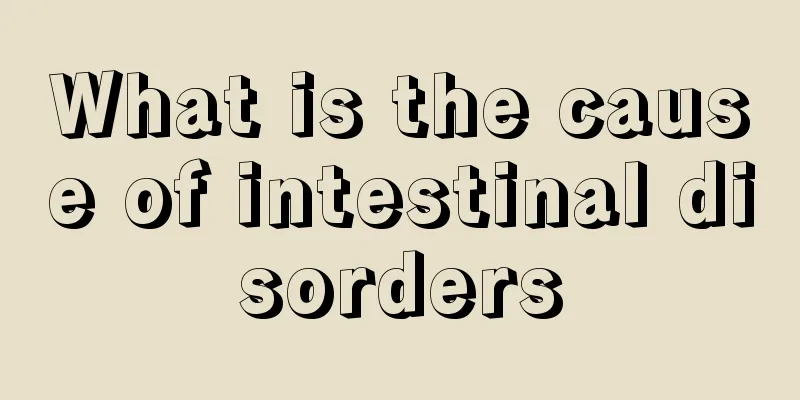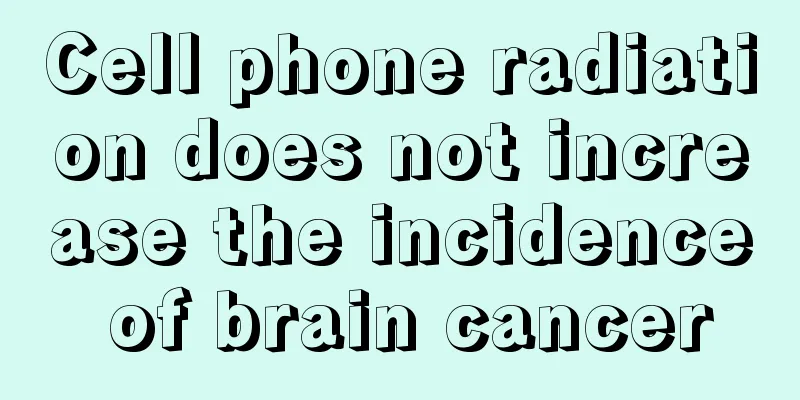What is the cause of intestinal disorders

|
If you have intestinal disorders, you should pay attention to understanding the causes so that we can solve them scientifically. For example, common irregular diet, frequent indigestion or acute gastroenteritis are all causes and symptoms of intestinal disorders. 1. Causes 1. Irregular diet It causes gastric motility disorder, promotes the secretion of gastric juice, and eventually leads to gastritis or gastric ulcer. 2. Pathological causes Such as indigestion, gastritis, ulcer disease, acute gastroenteritis and so on. 3. Mental factors Negative emotions can cause hypothalamic dysfunction through the cerebral cortex, thereby affecting gastrointestinal function and leading to gastrointestinal dysfunction. 2. Classification 1. Gastric neurosis ① Nervous vomiting. ② Neurogenic belching. ③Anorexia nervosa. 2. Enteric neurosis Enteric neurosis, also known as irritable bowel syndrome, is the most common functional disease of the gastrointestinal tract. ① Mainly colonic motility disorder, which is more common. ② Mainly caused by colon secretory dysfunction. ③Mainly small intestinal dysfunction. 3. Clinical manifestations Gastrointestinal dysfunction usually has a slow onset, and the clinical manifestations are mainly gastrointestinal symptoms. Patients with gastric neurosis often show symptoms such as acid reflux, belching, anorexia, nausea, vomiting, a burning sensation under the xiphoid process, fullness after eating, and upper abdominal discomfort or pain. The symptoms worsen with every mood change. Enteric neurosis, also known as irritable bowel syndrome, is the most common functional disease of the gastrointestinal tract. The main symptoms are intestinal symptoms. Patients often have abdominal pain, abdominal distension, intestinal rumbling, diarrhea and constipation. When there is pain in the left lower abdomen, a cord-like mass can be felt. The abdominal pain is often aggravated by eating or drinking cold drinks, and is relieved after defecation, flatulence and enema. Abdominal pain is often accompanied by symptoms such as abdominal distension, difficulty in defecation or increased frequency of bowel movements, and stools that may be loose or dry. In the past, this was called colon dysfunction, spastic colon, allergic colon, spastic colitis, mucous colitis, emotional diarrhea, etc. |
<<: Where does frozen shoulder hurt? Symptoms of frozen shoulder
>>: What are the side effects of Guilinggao
Recommend
If you have epilepsy at the age of 20, beware of brain tumors
Do you know what the early symptoms of brain tumo...
How to prevent bladder cancer
The most important thing to prevent bladder cance...
What is the best way to diagnose gastric cancer
Gastric cancer is a malignant tumor in the stomac...
What diseases are Acrivastine capsules used for?
Avastin capsules are a commonly used drug in clin...
How to correct a crooked chin after being hit
The facial bones of the human body are very fragi...
What foods to eat for early breast cancer
Patients with early breast cancer can eat some an...
What should patients with bile duct cancer pay attention to in their diet
What should patients with bile duct cancer pay at...
Precautions for enema
Enema is a procedure to clear out toxic substance...
How to clean after applying the plaster
We all know that when we have back pain or sprain...
Commonly used chemotherapy drugs for ovarian cancer
Ovarian cancer is one of the common tumors of fem...
Increased alanine aminotransferase
When it comes to alanine aminotransferase, perhap...
Get rid of insomnia through diet and health care, solve insomnia in a green way
Occasional insomnia will not have any impact on l...
What to do if the vulva is loose and wrinkled
Both men and women hope that their bodies can be ...
Can diabetics eat cherries? The nutritional value is so high
Cherries have extremely high nutritional value. T...
How long can you live with breast cancer in the middle and late stages
A small number of strictly selected patients with...









